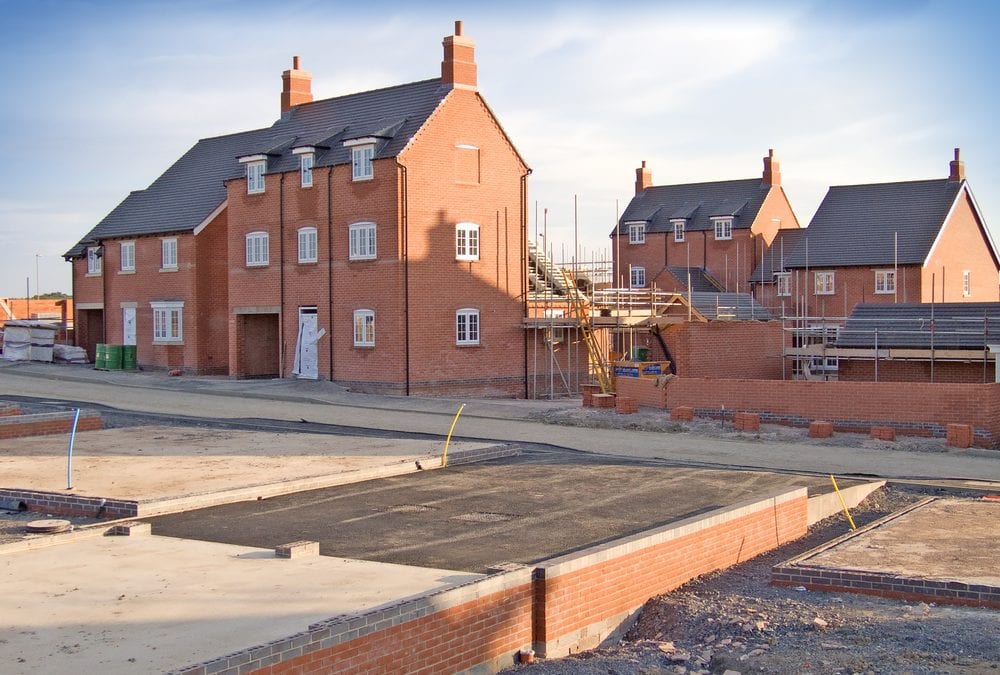
by admin | Jan 29, 2021 | Mortgage News
DIY can make for good entertainment. Type either “Room makeover” or “DIY disaster” into a search engine and you’re sure to get plenty of results. On a more serious note, however, it can be advisable to do some thinking before you decide whether or not to tackle DIY. If you do, then it’s advisable to do some more thinking on the best way to go about it.
Renters beware
Renters should generally avoid DIY completely unless they have explicit permission from their landlord. Simple bits of DIY may have a very low chance of going wrong. The problem is that if they do go wrong, you could find yourself in a whole lot of trouble with your landlord.
If you are going to ask your landlord’s permission, be very clear about exactly what you intend to do. Get permission in writing and then stick exactly to what was agreed. Make sure you’re clear on whether or not you can leave the changes in place when you move on.
If you can’t then think about the practicalities of rolling them back. For example, you may find it a lot easier to cover up paint than to take down even “renter’s wallpaper”, let alone traditional wallpaper.
People with old houses beware
Even if you live in a historic property, it’s probably fairly unlikely that you’ll find an oyster-shell wall or a fabulous wall mural in it. There is, however, at least the possibility of, literally, uncovering surprises, good and bad.
This means that if you’re planning on renovating an old house, you need to expect the unexpected and be ready to deal with it. That alone could be reason enough for home DIYers to leave well alone and just call in the pros.
The pros may also be in a better position to advise what materials can (or must) be used (or not used) in an older property. For example, some properties may require the use of traditional lime plaster to ensure breathability (and hence avoid condensation). In other cases, however, it may be appropriate to use modern materials but in a sympathetic manner.
Beware of your utility infrastructure
If you’re working anywhere near electrical wiring or plumbing (for gas or water), then you need to make sure that all the relevant supplies are turned off. Even so, you need to be very careful to avoid damaging them. The cost of putting right that damage could far exceed any savings you would have made by going down the DIY route.
If you’re tempted to attempt any DIY involving your utility infrastructure, then do your research thoroughly before you make a decision. Get it wrong and you could run into a whole world of pain. In fact, devaluing your home could be just one of a long list of problems you need to address.
Beware of working around windows
Take glass seriously. Even if you’re only doing something fairly basic like putting up a new curtain rod or installing shutters, you still need to protect the glass from both impact and vibrations. This isn’t just about keeping your window in one piece. It’s also about avoiding you (or anyone else) getting injured by broken glass.
Beware of working at heights
If you can’t reach something easily, get a ladder (or proper step stool). Do not just try to stretch or stand on a regular chair. Firstly you need to keep yourself safe. Secondly, if you’re going to do a job, do it properly. Raise yourself to a height where you can see and work comfortably and effectively.
Beware of paint cans
Spilt paint may not devalue your home, but it can certainly devalue your floor. Cover the floor properly. Pour as much paint as you need into a tray and keep that on a cover. Keep the lid on the paint can unless you’re actually pouring from it.

by admin | Jan 22, 2021 | Mortgage News
Despite the general lack of seasonal festivities, the Christmas period can still be financially challenging. That being so, you may be thinking about applying for a mortgage holiday in the new year. If so, here’s a quick guide to what you need to know.
Relief is still available for people impacted by COVID19
At present, people impacted by COVID19 have until 31st March 2021 to apply for a self-certified mortgage holiday. What this basically means is that you will automatically be granted a payment holiday for up to three months without the need to go through a formal approval process.
You can then extend this up to a total of 6 months. All COVID19-related payment holidays must, however, be finished by 31st July 2021. This means that if you think you might need or want to take the full 6 months, you’ll need to have everything signed off by the end of January.
The negatives of mortgage holidays
There are two potential negatives about taking a mortgage holiday. Firstly, the holiday gives you a break from the payments. It does not, however, give you a break from the interest. How much of a negative that will be will depend partly on your mortgage deal and partly on the size of your balance.
If you have a large balance on your mortgage, then you might want to consider organizing a partial payment holiday. This would give you some relief from the payments while limiting the amount of interest which accrued during the holiday. Alternatively, you could ask your lender if you could make payments voluntarily if your circumstances allow.
The second negative is that a payment holiday can impact your credit record. Technically, a COVID19-related holiday is not reported on your payment record. The problem is that in the real world, it’s pretty easy for lenders to figure out that you’ve had a payment holiday. If you’re making regular payments, your balance is going down accordingly. If you’re on a payment holiday, it isn’t.
Again, the real-world impact of this is likely to depend on your circumstances. If you’re happy to stay with the same lender for the immediate future, then you may be prepared to take the hit. If, however, you’re looking to change lenders, then you may be better overall to make the payments, even if it’s a struggle.
After the mortgage holiday ends
After the mortgage holiday ends you either resume payments as normal or go onto tailored support measures. These will be set up in partnership with your lender. Be aware that, like payment holidays, these support measures may come at a price. For example, if your lender extends your mortgage term, you may pay less each month but end up paying more overall.
Unlike COVID19 payment holidays, tailored support measures will be reported on your credit record. Again, the impact they have will depend on your circumstances. For example, if you extend your mortgage term, you will be able to maintain a track record of regular payments. If, however, you arrange another deferral, you will be sending a very clear message to a lender.
If you switch to an interest-only mortgage, then you’ll need to think very seriously about how you’ll repay the capital. Unless you have some other repayment vehicle in place, then you will need to give up ownership of your home. This may not mean that you have to leave it. You might, for example, be able to use equity release to pay off the balance.
Selling your home
If it’s a continual struggle to pay your mortgage, then your best option may be to sell your home. This can be a hard decision to take. In fact, you may want to get professional advice before you take it. Keep in mind, however, that there are many reasons why selling your home on your own terms is better than having it repossessed.
Your property may be repossessed if you do not keep up repayments on your mortgage.

by admin | Jan 15, 2021 | Mortgage News
COVID19 is battering the economy. Brexit has happened. There is no telling what 2021 will bring and yet the housing market is forging ahead. According to the Halifax House Price Index average house prices have increased 7.6% in the year to November and 1.2% between October and November. This begs the question of why house prices are rising.
The Stamp Duty holiday
Possibly the most obvious reason why house prices are rising is the Stamp Duty holiday. Quite simply, by making most buyers pay less to HMRC, the Treasury left them with more budget available for the offers themselves.
If this is the only factor driving the housing market, then its effect should begin to wear off very soon. The offer is due to come to an end on 1st April 2021. That’s basically for three months. What’s more, the Stamp Duty holiday only applies to purchases completed before that date. In other words, the conveyancing has to be finished.
The great escape to the country
The great escape to the country may be a bit of an overstatement. There is, however, clear evidence that home buyers want more space. On a like-for-like basis, bigger properties tend to cost more than smaller ones, hence average house prices could rise, possibly substantially, at least over the short term.
Over the long term, however, there are a lot of variables to consider. One of the most obvious is the question of what happens with smaller properties? If their owners hold on to them, then the strong house price rises could continue, fuelled by the sale of the larger properties.
If, however, their owners lower the prices to get rid of them to someone, then prices could level or even fall. A lot would depend on how many smaller properties were sold and at how much of a discount to what you would expect given pre-COVID19 housing trends.
The remote working issue
The question of whether or not the appetite for more space continues may depend largely on the question of whether or not remote working becomes an established part of the (post-COVID19/post-Brexit) “new normal”.
At present, this is literally anybody’s guess. It is, however, worth noting that COVID19 has forced companies to support remote working. This demonstrates that it can work at least to some extent. The question is, therefore, really whether or not companies see any benefit to it once the current pandemic is consigned to the history books.
The answer to that question is likely to be “it depends on the company”. Some companies may be only too eager to get their staff back into the office. Others, however, may be looking at the cost-savings of reducing their office space and the opportunities offered by being able to extend their recruitment process beyond their local area.
Seizing the moment
Another possible reason why buyers are so active now is that they don’t know for sure what’s going to happen in the future. Since March 2020, the UK has essentially been in various stages of lockdown in various parts of the country. Buyers (and sellers) might have been motivated by the thought that they might not get another chance to move any time soon.
If this is the case then, again, it’s debatable how long this stimulus will last. Up until recently, talk of a vaccine has been largely just that talk. Now, it seems to be making its way into reality. Depending on how this progresses, it may calm the nerves of buyers (and sellers), who fear being trapped in an unsuitable home for another lockdown (or more than one).
Your property may be repossessed if you do not keep up repayments on your mortgage.

by admin | Jan 10, 2021 | Mortgage News
UK Finance recently published its figures for mortgage arrears and possessions for Q3 2020. Superficially, these figures are encouraging. They show a very low level of arrears and possession action. These figures do, however, have to be set in the context of the special arrangements made for COVID19. This raises the question of what happens now?
The numbers in brief
According to UK Finance’s figures, in Quarter 3, 2020, there were 74,850 homeowner mortgages with arrears of 2.5% or more of the outstanding balance. This figure is 5% higher than the figure for Quarter 3, 2019. There were also 5,400 buy-to-let mortgages with arrears of 2.5% or more of the outstanding balance. This figure is 19% higher than the figure for Quarter 3, 2019.
Repossessions were made on 160 homeowner mortgaged properties and 230 buy-to-let mortgaged properties. This was 88% and 71% lower than the figure for Quarter 3, 2019. As Quarter 3, 2020 was a period in which there was a moratorium on involuntary possessions, it is to be assumed that either these repossessions were by agreement or that the property was already vacant (or both).
The COVID19 situation
Since March 2020, it has been possible for mortgage holders affected by COVID19 to request payment holidays. As the rules currently stand, borrowers are automatically granted payment holidays of up to six months on a self-certification basis. After this time, they must either resume payments as normal or work with their lender to find an alternative solution.
There are two points which are particularly worth noting. Firstly, these payment holidays should not result in negative markers being placed on a borrower’s credit record. Secondly, lenders can continue to apply interest to the account during the holiday period. This means that the result of taking a holiday is that a borrower’s overall balance is raised.
A small win for mortgage prisoners
On a more positive note, the wheels appear to be finally turning for the UK’s mortgage prisoners, although there is still a long way to go before they are freed from their chains. The FCA now allows lenders to use “modified affordability assessments” for qualifying mortgage prisoners. This is by no means all of them but it is at least a start.
Unshackling mortgage prisoners should be a win for everyone. The former mortgage prisoners win from being able to switch to better (i.e. more affordable) deals. The fact that these deals are more affordable should reduce the risk of default, thus being a win for lenders.
The way forward
At some point, the government will have to end the special measures put in place to support those impacted by COVID19. The only questions are when this will happen and how it will happen. In particular, will all measures be ended completely at once or will they be phased out slowly? If the latter, how slowly will they be withdrawn?
Either way, it seems fair to assume that the extent to which the UK’s mortgage market returns to “business as usual” will depend greatly on the extent to which the UK’s economy returns to “business as usual”. This means not just recovering from COVID19 but also adjusting to Brexit. The speed with which this happens may vary greatly from one industry sector to another.
In the short term, lenders may have to show a lot of flexibility to borrowers while they figure out the best path forward in their own unique situation. For example, lenders may have to start allowing greater use of interest-only deals to allow existing homeowners either to make up lost income or to sell their property on their own terms.
Your property may be repossessed if you do not keep up repayments on your mortgage.

by admin | Dec 11, 2020 | Mortgage News
By this point, everyone probably knows to make sure a house looks good before a potential buyer comes to view it. For most rooms, it’s enough to make sure that surfaces are clean and everything is tidy. Some rooms, however, need more attention. The bathroom is obviously one. It may, however, be less obvious that your kitchen is another.
The power of smell
Contrary to what is often suggested, it’s actually a bad idea to try to entice home viewers with scent. The problem with this approach is that scents are very personal. This means that even popular scents, like citrus, will be disliked by some people. It would be very unfortunate if a potential buyer was one of those people.
Instead, you should be aiming for a neutral smell, a lack of odour. This can be harder to achieve than it sounds, especially in a kitchen. A kitchen is, of course, a place where you prepare food and some foods smell. Hopefully, it’s obvious that you should be emptying your bins regularly (and cleaning them too). You also need to deal with your appliances.
Cookware store Oliver’s Kitchen ran a survey on the UK’s kitchen cleaning habits and discovered that 48% of people don’t clean their fridge regularly, 69% of people don’t clean their oven regularly and 82% of people don’t clean their microwave regularly. If you’re trying to sell your house, you need to clean all of these appliances properly, along with your hob and freezer.
Don’t make your buyers sick
With all the focus on COVID19, it can be worrying easy to forget that there are many other health and safety issues to consider. The kitchen is a potential hotspot for all kinds of bacteria. Anything a buyer could potentially touch (or brush past) could transfer those bacteria to them. If this makes them ill, it could put them off buying your house.
The key point to note is that cleaning only makes a real difference if your cleaning tools are clean themselves. This may sound like stating the obvious, but the results of the Oliver’s Kitchen survey indicate that the obvious is being widely ignored. For example, 64% of respondents admitted that they didn’t wash/change their kitchen dishcloth/sponge regularly.
Unless you use hygienically clean tools the most you will do is move bacteria from one place to another. This is basically asking for trouble at any time. For completeness, hand-washing is also important, especially in the age of COVID19. If you’ve never learned about proper hand-washing technique, now is a great time to do so.
Keep out uninvited visitors
One of the great advantages of selling a house in winter is that you’re much less likely to need to deal with insects. This includes ants as well as the flying sort. Other kinds of uninvited visitors, however, can stick around over the winter months. In fact, they may find your kitchen a very appealing place to spend at least some of their time.
Even if they’re not around when your visitors appear, they can leave little traces behind. These aren’t exactly a positive sign for house viewers. What’s more, if you know you have a pest issue, then you may have to declare it or risk potential legal issues further down the line. The good news is that even in winter, most pests will stay away unless you encourage them.
The easiest way to encourage unwanted visitors is to make food available to them. This is why kitchens are such likely targets. It, therefore, follows that the easiest way to deal with this is to make sure that all food is always kept stored away unless it is actually being prepped.
If you need mortgage advice please contact us.

by admin | Dec 6, 2020 | Mortgage News
Since 2001, the UK has had no fewer than 16 housing ministers. Seven held the post under a Labour government. Nine have held the post under a Conservative government. None have succeeded in resolving the many issues with the UK’s housing market. Now it’s Boris Johnson’s turn to try.
A conference to remember
Even though the Conservative party conference is an annual event, the 2020 conference will probably go down in history as an event to remember. It was the first time the conference had been held virtually. The reason it was held virtually was due to a global pandemic and, of course, it was the last Conservative party conference before Brexit.
It was therefore entirely understandable that the Prime Minister would use the occasion to try to spread at least some cheer and general positivity. One of the ways he did this was by setting out a plan to convert the current under 40s from “Generation Rent” to “Generation Buy”.
The Prime Minister’s plan is thin on detail
At present, there is virtually no specific information available about the PM’s intentions. All he has said is that he intends to make it possible for first-time buyers to buy homes with only a 5% deposit. This statement in itself is rather odd because it is already possible for them to do so via the existing Help to Buy Equity Loan scheme.
As a quick reminder, this was due to have been closed at the end of March 2021. It has, however, been officially extended to the end of March 2023. It will, however, only be available to first-time buyers. There will also be some adjustments to the level of help available. The fundamental mechanics of the scheme will, however, remain the same.
To recap, under the existing Help to Buy Equity Loan scheme, buyers put down a 5% deposit. The government guarantees 20% of the remainder so the buyer only needs a mortgage for the remaining 75%. The government loan is interest-free for five years. After this time, the buyer can either buy them out or pay interest on the loan.
Help to Buy Equity Loan Part 2?
If Boris Johnson simply meant to extend the existing Help to Buy Equity Loan scheme without any changes, then presumably he would just have said so. This suggests that, while the basis of the idea might be the existing Help to Buy Equity Loan scheme, there are going to be some changes to it.
The risks of extending the Help to Buy Equity Loan scheme
Extending the Help to Buy Equity Loan scheme to include completed property might placate those who object to homebuilders profiting from the taxpayer. It would, however, create additional risks, which could rebound on the taxpayer.
The first risk is the risk of creating a housing bubble, or, at the very least, creating excessive house-price inflation. If it does, then there are massive risks to everyone, including, possibly especially, the next generation of first-time buyers.
The second risk is the risk of default. Quite bluntly, the Help to Buy Equity Loan scheme does not make housing more affordable by making it less expensive. It makes it more affordable by restructuring the financing. It also puts the taxpayer on the hook for much of the risk of default on that financing.
Your property may be repossessed if you do not keep up repayments on your mortgage.







Recent Comments